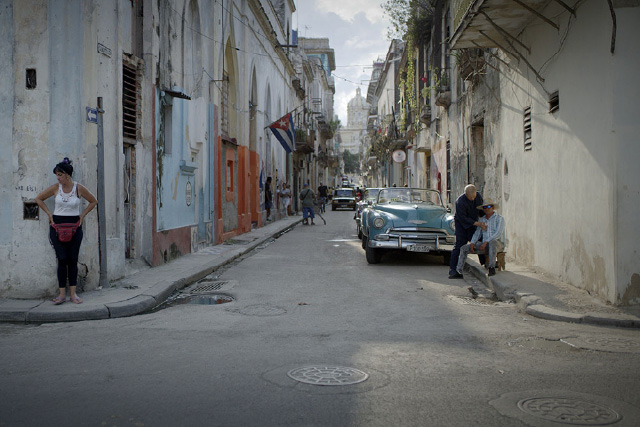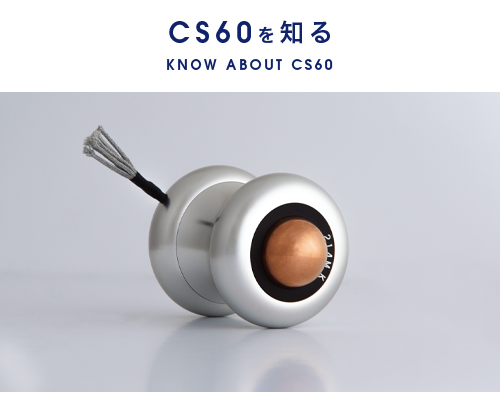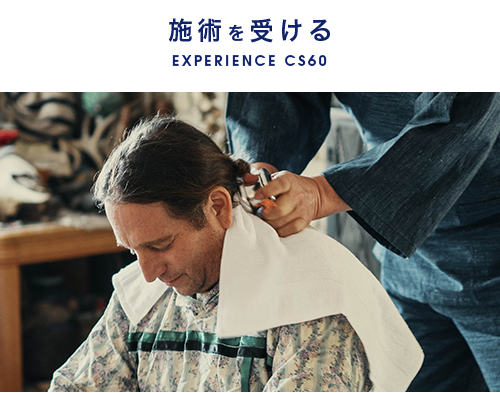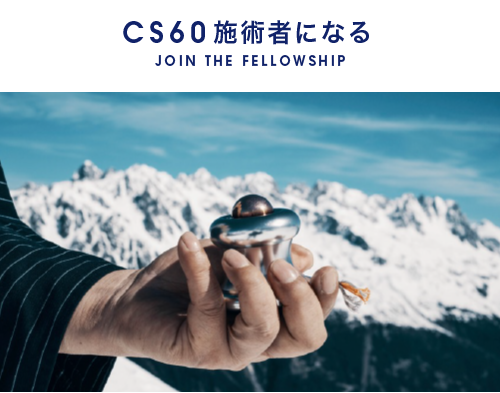
- 2019/12/12
-
Newsletter Vol.36
天性の明るさを持つキューバ人
The Sunny People of Cuba
Les Cubains : les gens qui ont un caractère naturellement positif.  今回は青山のCS60本部にうかがい、西村光久さんにキューバ遠征の様子を教えていただきました。
今回は青山のCS60本部にうかがい、西村光久さんにキューバ遠征の様子を教えていただきました。
―――――――――――――先生、どうしてキューバに行かれたのですか?
西村:国民総数に対して医師の数が大変多い国のひとつでもあるので、僕がもともと気になっていた場所でした。実際、キューバは、現地に降り立った瞬間に好きになっちゃいました。人間性も、街の感じも。ただ、排気ガスには結構苦労しましたが。昔の車なんで排気ガスが凄いんですよね。
―キューバは社会主義国家ですよね?
西村:そうです。多くの国民が国家公務員です。
携帯電話のSIMを買うお店で、スタッフの女性に給料を聞いたら月給3000円程度と言っていました。国営のナイトショーで出会ったダンサーたちは月給4000円程度との事。―逆に言えばそれだけの収入で暮らしていけるということですよね?
西村:食料や医療は無償で提供されていますから。貧しいのは貧しいのですが、悲しさはそれほど感じませんでした。少し前に日本のテレビドラマの「おしん」が放送されていたのですが、放送中は表に人がいなくなるほどの人気だったそうです。ですから日本人のそういう感性と共鳴するところはあるかもしれないですね。
―キューバでも施術されたのですよね?
西村:もちろんです。現地に長年住んでいる日本人の方にガイドしていただき、ダンサーの方へ施術しました。
彼は「キューバでナンバーワン」と言われていたほどの踊り手でしたが、ある日、脳梗塞になり、左半身不随になったとの事です。
施術しましたが、長い間休んでいた細胞が動き出すまでには時間がかかるように感じました。―他にはどんなところへ行かれたのですか。
西村:夜はキューバのトップミュージシャンたちに施術しました。ダンサーは「こんなに脚が上がったことがない!」とすごく喜んでくれましたし、トロンボーン、ボンゴの演奏家は「今日はYOUのために演奏する」と言って、ライブ中に僕を指さして「YOU!」と言ってくれたんですよ。
―明るくて陽気な民族性なんですね。
西村:そうなんです。「どうしてこんなに明るいんだろう」と入国した瞬間から不思議に思っていました。それが人間本来の明るさだと思うのですが。死ぬまでお金の心配をしなくてもいいということも関係しているかもしれません。
日本ではテレビでも雑誌でも「老後は2000万円必要」という報道などで、暗くなってしまいますよね。老後のために節約してお金をためるだけになると、すべてのことに対してはじけることができなくなると思います。お年寄りをピンピンコロリの世界に招き入れて、死ぬまで元気で働くことができれば、医療や介護のことを心配しなくていいですよね。僕はそういう意味でも、CS60をもっと普及させないといけないなと思いました。(おわり)
For this edition of the CS60 newsletter, we spoke to Mitsuhisa Nishimura at the Aoyama CS60 HQ to hear about his journey to Cuba.
――――――――――――– Dr. Nishimura, why did you go to Cuba?
Nishimura: One of the reasons I was initially interested in Cuba was that it is one of the countries with the most doctors per capita in the world.
I actually fell in love with Cuba the moment I set foot there. The humanity of the people, the feel of the city. The only thing was the exhaust fumes in the city were a bit of a struggle. All the cars are really old, so the exhaust fumes are pretty bad.– Cuba is a socialist country, right?
Nishimura: That’s right. A lot of people there are public servants. When I asked a woman working at the shop where I bought a SIM card how much she was making, she told me she makes about \3000 per month.
The dancers I met at the night show run by the government said that they make around \4000 per month.– In other words, though, is that Cuba is a country where you can live on just that per month?
Nishimura: They provide medical treatment and food for free there. Poor is poor, but I didn’t feel that they people there were sad. Some time ago there was a TV show called Oshin that aired on NHK in Japan. It was so popular that the streets were empty when it was on. In that sense, I think that sort of sensibility resonates with Japanese people.
– You performed treatments in Cuba as well, right?
Nishimura: Of course. With a Japanese guide who was a long-term resident in Cuba, we treated one of the dancers. That dancer had been considered the best dancer in Cuba, but one day he had a stroke, which left the left side of his body paralyzed.
I treated him, but in his case the cells that have spent a long time resting will still need a while to get moving again, I feel.– What other places did you go?
Nishimura: At night I treated Cuba’s top musicians. The musicians were delighted, telling us they had not been able to raise their legs like they now could in years. The dancer said that he hadn’t been able to raise his legs so much in a long time, so the trombone and bongo performers declared: “Today’s performance is for you!” They pointed to me during their performance and shouted: “You!”
– They’re a bright and cheery people, aren’t they?
Nishimura: They are. Ever since I stepped foot in the country, I constantly wondered why they were so cheery. I wondered if that might be the base merriness of humanity. It probably also has to do with not needing to worry about money till your dying day. In Japan we get bombarded by television and magazines telling us we need to save 20 million yen for retirement, which gets you down. You end up just scrimping and saving for your old age, which stops you being able to bounce around and be open to everything, I think.
If we could make a world where the elderly could live healthily and energetically until their very last day, people would be able to work happily until they died, and so wouldn’t need to worry about medical and nursing costs.
That is what motivates me to promote the CS60 further and further.(End)
Aujourd’hui, nous avons visité le siège du CS60 à Aoyama et avons interviewé Monsieur Hisamitsu Nishimura sur son voyage à Cuba.
――――――――――――– Professeur Nishimura, pourquoi êtes-vous parti à Cuba ?
Nishimura : Comme Cuba est un des pays dans lesquels le nombre de médecins par habitant est important, je m’y intéresse depuis longtemps.
Effectivement, je suis tombé amoureux de Cuba dès mon arrivée : j’ai apprécié les gens et l’ambiance de la ville.
J’ai pourtant été embêté par les gaz d’échappement. Étant donné qu’il y a beaucoup de vieilles voitures à Cuba, l’air est pollué en raison des gaz d’échappement.– Cuba est un pays socialiste, n’est-ce pas ?
Nishimura : Oui. Beaucoup de personnes à Cuba sont donc fonctionnaires d’État.
Selon une vendeuse de cartes SIM, son salaire n’atteint que 3,000 yens pas mois.
Les danseuses de cabaret géré par l’État que j’ai rencontrées quant à elles semblent gagner à peu près 4000 yens par mois.– Cela veut dire qu’elles peuvent survivre à Cuba même avec ces petits salaires, n’est-ce pas ?
Nishimura : La nourriture et le soin médical sont offerts. C’est un pays pauvre mais je n’ai pas trop ressenti de tristesse.
A Cuba, une série japonaise intitulée « Oshin » est passée à la télé il y a peu de temps. Elle a eu du succès : pendant la diffusion de la série à la télé, il n’y avait personne dans les rues.
On peut donc dire que les Cubains ont une sensibilité qui ressemble à celle des Japonais.– Avez-vous soigné des gens à Cuba également ?
Nishimura : Bien sûr. J’ai demandé à un japonais qui habite au Cuba depuis longtemps de me guider. J’ai pu soigner un danseur.
Auparavant, il était le « meilleur danseur à Cuba ». Cependant, après avoir fait un infarctus cérébral, il a eu le côté gauche du corps paralysé.
Je lui ai donné un soin mais j’ai l’impression qu’il faut du temps pour que les cellules qui étaient en repos pendant longtemps soient réactivées.– Où d’autre est-ce que vous êtes allé ?
Nishimura : J’ai soigné les meilleurs musiciens et danseurs de Cuba pendant les nuits.
Un danseur était très content d’avoir pu de nouveau élever sa jambe très haut. Un tromboniste et un musicien de bongo, quant à eux, m’ont dit : « nous allons jouer for YOU ». Ils ont pendant leur concert dit « YOU » en me montrant.– Les Cubains sont joyeux alors.
Nishimura : Oui. Dès que je suis arrivé à Cuba, je me suis demandé pourquoi ils sont si joyeux.
Je pense que tout le monde est joyeux en soi.
Le fait que les Cubains soient joyeux est peut-être lié au fait qu’ils n’ont pas besoin de s’inquiéter de leur argent jusqu’à la fin de leur vie.
Au Japon, les médias, à la télé ou dans les magazines, disent qu’il faut au moins 20 millions yens pour vivre lorsqu’on est à la retraite. Bien sûr que cela nous déprime.
Si on ne dépense plus et qu’on ne fait qu’économiser pour sa vieillesse, on doit être toujours prudent.
Si des personnes âgées peuvent travailler jusqu’au dernier moment de leur vie, nous n’avons plus besoin de nous inquiéter des soins médicaux.
Pour cela aussi, j’ai pensé qu’il fallait diffuser le CS60 encore plus.(fin)
INDEX















